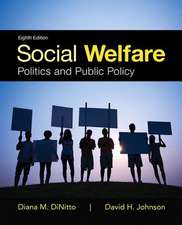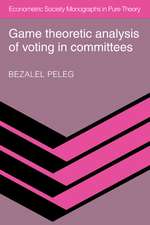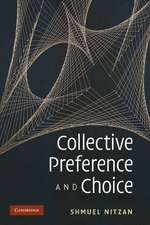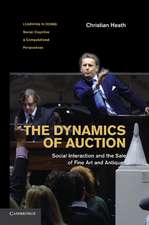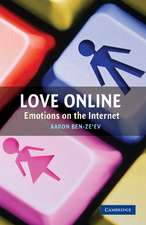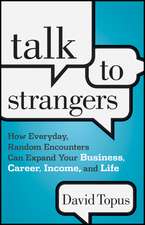Constructive Controversy: Theory, Research, Practice
Autor David W. Johnsonen Limba Engleză Paperback – 3 iun 2015
| Toate formatele și edițiile | Preț | Express |
|---|---|---|
| Paperback (1) | 290.28 lei 6-8 săpt. | |
| Cambridge University Press – 3 iun 2015 | 290.28 lei 6-8 săpt. | |
| Hardback (1) | 452.47 lei 6-8 săpt. | |
| Cambridge University Press – 17 iun 2015 | 452.47 lei 6-8 săpt. |
Preț: 290.28 lei
Nou
Puncte Express: 435
Preț estimativ în valută:
55.55€ • 57.39$ • 46.21£
55.55€ • 57.39$ • 46.21£
Carte tipărită la comandă
Livrare economică 19 martie-02 aprilie
Preluare comenzi: 021 569.72.76
Specificații
ISBN-13: 9781107461505
ISBN-10: 1107461502
Pagini: 255
Ilustrații: 6 b/w illus. 5 tables
Dimensiuni: 153 x 228 x 13 mm
Greutate: 0.36 kg
Editura: Cambridge University Press
Colecția Cambridge University Press
Locul publicării:New York, United States
ISBN-10: 1107461502
Pagini: 255
Ilustrații: 6 b/w illus. 5 tables
Dimensiuni: 153 x 228 x 13 mm
Greutate: 0.36 kg
Editura: Cambridge University Press
Colecția Cambridge University Press
Locul publicării:New York, United States
Cuprins
1. Need for constructive controversy?; 2. The nature of constructive controversy; 3. Theory of constructive controversy; 4. The processes of constructive controversy and concurrence seeking; 5. The outcomes of constructive controversy; 6. Conditions mediating the effects of constructive controversy; 7. Constructive controversy and decision making; 8. Constructive controversy in education; 9. Constructive controversy and political discourse in democracies; 10. Constructive controversy, creativity, and innovation; 11. Constructive controversy and building and maintaining peace; 12. Conclusions.
Recenzii
'This book is a must-read for any scholar and practitioner who is interested in constructive controversy. It provides a breathtaking journey in the history of one of the most powerful mechanisms in social interaction, and a wealth of insights on how to foster informed political decisions, accompany accurate professional choices, and elicit diversified learning.' Fabrizio Butera, University of Lausanne
'Hurray for cooperation! Johnson's argument about the value of cooperation in the context of controversy is theoretically cogent, research based, and practically relevant. This is a major achievement that should be celebrated by academics and practitioners alike. You will thoroughly enjoy reading this book.' Daniel Druckman, George Mason University, Macquarie University and the University of Queensland
'The result of decades of theory, research, and practice in a wide variety of settings, but primarily education and business, this book will be invaluable for those involved in conflict resolution, no matter the circumstances.' Choice
'One could use Constructive Controversy as a jumping-off point to motivate students by engaging in real-life problems and branching out to the fundamentals of why and how the process works and how the desired outcomes are affected by the nature of the process that is used to engage people. Along the way are opportunities for students to discover for themselves aspects of cognition, human development, and the psychology of emotion.' PsychCRITIQUES
'Hurray for cooperation! Johnson's argument about the value of cooperation in the context of controversy is theoretically cogent, research based, and practically relevant. This is a major achievement that should be celebrated by academics and practitioners alike. You will thoroughly enjoy reading this book.' Daniel Druckman, George Mason University, Macquarie University and the University of Queensland
'The result of decades of theory, research, and practice in a wide variety of settings, but primarily education and business, this book will be invaluable for those involved in conflict resolution, no matter the circumstances.' Choice
'One could use Constructive Controversy as a jumping-off point to motivate students by engaging in real-life problems and branching out to the fundamentals of why and how the process works and how the desired outcomes are affected by the nature of the process that is used to engage people. Along the way are opportunities for students to discover for themselves aspects of cognition, human development, and the psychology of emotion.' PsychCRITIQUES
Notă biografică
Descriere
Using the social psychological theory of 'constructive controversy', this book analyses the nature of disagreement among members of decision-making groups.



